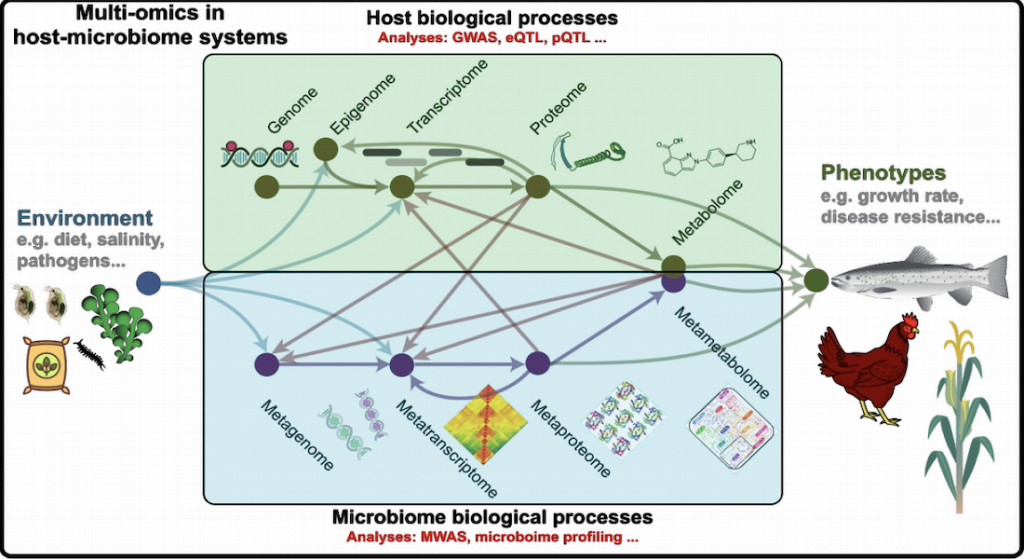New FindingPheno project from CEH develops new tools
Once you disentangle the biological interactions between hosts and microbiomes, you get a better understanding of human diseases, as well as the way we produce sustainable food for future generations. This is the ambition of the new FindingPheno project from the DNRF’s Center for Evolutionary Hologenomics at the University of Copenhagen. Associate Professor Shyam Gopalakrishnan and Associate Professor Morten Limborg from CEH are at the forefront of this project.

The new project FindingPheno is in the process of developing tools that are able to disentangle hosts and microbiomes and analyze their data separately. Once you disentangle the biological interactions between hosts and microbiomes, you get a better understanding of human diseases, as well as the way we produce sustainable food for future generations. Associate Professor Shyam Gopalakrishnan and Associate Professor Morten Limborg from the DNRF’s Center for Evolutionary Hologenomics at the University of Copenhagen are at the forefront of this project.
“FindingPheno addresses this exact knowledge gap by using existing BIG data sets to develop new methods to better analyze these data; the methods developed in FindingPheno are expected to significantly improve how we understand and utilize the functions provided by microbiomes in combating human diseases as well as the way we produce sustainable food for future generations,” said Associate Professor Limborg from CEH.
New analytical approach
Methods that allow an integrated analysis of the so-called multi-omics data are still lacking, which means that the understanding of host-microbiome interactions is diminishing. FindingPheno is in the process of developing computational tools that are able to analyze and separate the data from each other.
“The project kicks off officially on the 1st of March – and I am looking forward to getting my hands dirty. To actually work on the research questions that we have posed in the project and see it all come together. This is my first time coordinating such a large project, so I am excited and nervous to see how I can fit into that role. And hopefully, learn from my colleagues at the Center who have prior experience with such projects,” said Associate Professor Gopalakrishnan.
Read more about the FindingPheno project here
More information about CEH can be found here
